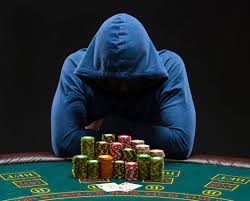If you or a loved one is struggling with an addiction to gambling, consider seeking out counseling for help. Professional help for gambling disorders is often available from organizations like Alcoholics Anonymous, Gam-Anon, or Gamblers Anonymous. In addition, physical activity can help those with gambling problems to remain active and physically healthy. The first responsibility of a family or household is to ensure its safety, so setting limits and enforcing them can be a good idea.
Once you’ve decided that gambling has become a problem, strengthen your social support system. Relate with family and friends, and build a new network outside of gambling. Enroll in an education class, volunteer for a worthy cause, or join a peer support group. Consider joining Gamblers Anonymous, a 12-step recovery program modeled after Alcoholics Anonymous. This group requires members to identify a sponsor, a fellow gambler who has been in your shoes.
While gambling revenues are important to the economy, there are also societal, interpersonal, and personal costs. Problem gambling may affect the economy by affecting businesses and services. The money spent on gambling can be used for beneficial causes and may negatively affect public services. Additionally, a new type of gambling may not be the best choice for a community. This may be the case for many, but there are other ways to limit gambling addiction. You might also try giving up your habit.
Despite the benefits of addiction treatment, problem gambling can lead to a variety of negative effects, including social, emotional, and physical health. Problem gambling is categorized as an impulse-control disorder and can result in many physical health problems. For example, problem gamblers may experience abdominal disorders, migraines, and even gastrointestinal disturbances. The psychological toll of gambling may lead to feelings of despondency and depression. Even attempts at suicide may be triggered by gambling.
Despite the negative stigma associated with gambling, many people enjoy the excitement and chance to win. Even if the gambling industry portrays itself as a safe form of entertainment, it is a very manipulative and exploitative industry. The providers of these services will exploit any misunderstandings about the game to increase profits. The best way to avoid this is to learn as much as possible about the games and their odds. And, above all, remember that gambling is not a realistic way to make money. Many tourists are simply seeking fun and enjoyment.
Several Protestant denominations are against gambling. This includes the Christian Reformed Church in North America, the Church of the Lutheran Confession, the Southern Baptist Convention, and the Assemblies of God. In the United States, gambling was almost universally banned in the early 20th century, and the resulting prohibition led to the growth of the mafia and criminal organizations. However, attitudes towards gambling have gradually softened and laws regulating it have been relaxed.
Children who begin gambling during childhood are at a higher risk for developing a gambling problem as adults. Approximately one-third of problem gamblers began gambling as children. Also, children are likely to copy their parents’ behavior, so limiting their exposure can help reduce the risk of developing a gambling problem. This could also lead to social isolation and loss of friends among non-gambling peers. So, even if you’re unsure whether gambling is an acceptable pastime for your children, make sure you check for warning signs.

